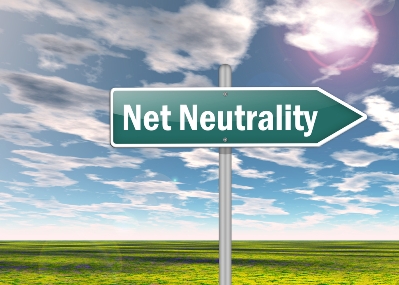The recent federal court appeals net neutrality ruling could have an impact on your web hosts service, including content access, speed and expense.
The Ruling
On January 14th the Washington D.C. Federal Court of Appeals ruled (2-1) that the FCC (News - Alert) does not have proper authority to regulate internet service providers (ISP) according to how providers are currently classified. The "Net Neutrality Rules," also known as the "Open Internet Order," are FCC regulations that governed service providers, like Verizon, Comcast and AT&T (News  - Alert) and held that ISPs must treat all internet traffic equally, no matter the source. Whether a consumer is downloading a game or checking her email, the access should be the same.
- Alert) and held that ISPs must treat all internet traffic equally, no matter the source. Whether a consumer is downloading a game or checking her email, the access should be the same.
While the court maintained its support for an open internet, it denied FCC's right to regulate providers under current ISP classification. In the late 1990s, the FCC decided to classify internet service providers as "information services" under Title I of the Telecommunications Act. This portion of the act gives the FCC less authority over businesses than the Title II portion, the section that cable and telecommunication companies fall under, and where the FCC has greater regulatory authority. Verizon (News  - Alert) successfully argued that the FCC's Net Neutrality Order incorrectly placed Title II regulations on ISPs, which are Title I businesses. The court agreed and the FCC’s regulation on net neutrality was upended. The FCC plans on appealing the case in hopes that three new judges might uphold the former regulatory structure.
- Alert) successfully argued that the FCC's Net Neutrality Order incorrectly placed Title II regulations on ISPs, which are Title I businesses. The court agreed and the FCC’s regulation on net neutrality was upended. The FCC plans on appealing the case in hopes that three new judges might uphold the former regulatory structure.
Impact on Web Hosting Companies
So much has been written this week about the possible consumer impact from the decision. Many speculate that the internet, once a place where users could access information freely and equally, will soon become a tiered, pay-for-play structure, where those with the ability to pay will have the most access. Those who do not may experience clogged networks resulting in slower speeds. Similar to water or electric utility usage, ISPs could now have the option of charging for amount of data and bandwidth usage and billing customers. While some argue that someone has to pay for network bandwidth and that ISPs can use added revenue to better their networks, others argue the revenue will only serve to increase income, not to better infrastructure.

image via shutterstock
But how might this ruling impact web hosting companies?
Here are some possible scenarios:
- Increased cost to the consumer
- An ISP could choose to partner with one web hosting company over others
- Providers could deny access to certain web hosting companies, if set-up as package offers
Many fear that this ruling will create a business environment in which small and even mid-sized companies, like A Small Orange (News - Alert) or AccuWeb hosting, for example, cannot compete in. Considered a victory for telecommunications giants like Verizon, larger companies will be able to pay more for preferential treatment and better speeds. That said, the FCC will still be able to inquire as to how broadband access is being allocated.
Hosting companies who cater to large corporations, or even small business, may see an increase in expenses, despite the enormous growth and low overhead seen in cloud computing. Typically cloud computing is extremely economical, even from small providers. Many speculate that these increases will be passed off on to consumers. Again, it could look like a similar structure to cable's tiered package options, where some hosting companies, with heavy server-loads and more data usage, will pass this cost on to their customers.
Recall that Apple's iPhone (News - Alert) was available exclusively on AT&T at first. ISPs could partner with some hosting sites to create consumer packages, marketing to certain demographics.
Providers offering a structured program could simply deny access to certain hosting servers. Though, this is an extreme possibility. At the very least, users could see slower site speeds or an increase in site crashing regardless of their hosting site.
As the days since the ruling pass, one fact is clear, user experience is going to change. In order to satisfy customers, savvy hosting companies must be one strategic step ahead.
Edited by Ryan Sartor
View all articles
 Internet Telephony Magazine
Click here to read latest issue
Internet Telephony Magazine
Click here to read latest issue CUSTOMER
CUSTOMER  Cloud Computing Magazine
Click here to read latest issue
Cloud Computing Magazine
Click here to read latest issue IoT EVOLUTION MAGAZINE
IoT EVOLUTION MAGAZINE




